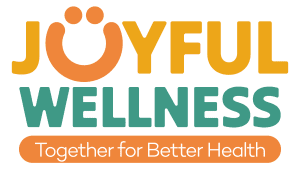BY KATHERINE L. MAGSANOC
March is Colorectal Cancer Awareness Month, a time to raise awareness about this preventable and treatable disease.
Colorectal cancer — affecting both the colon and rectum — is the third most common cancer diagnosed in both men and women in the United States, and the second leading cause of cancer-related deaths when cases are not detected early. [1]
With early detection, the survival rate significantly increases. This comprehensive guide will delve into the importance of early detection, risk factors, screening methods, and treatment options.
Understanding Colorectal Cancer
Colorectal cancer develops from polyps, small growths in the colon or rectum. Most polyps are benign, but some can become cancerous over time.
The progression from polyp to cancer can take several years, providing a crucial window for early detection and intervention. [2]
Understanding this progression highlights the importance of regular screening.
Risk Factors for Colorectal Cancer
While anyone can develop colorectal cancer, certain factors increase the risk:
- Age: Risk significantly increases after age 50
- Family history: A family history of colorectal cancer or polyps elevates the risk
- Genetics: Specific genetic syndromes, such as Lynch syndrome and familial adenomatous polyposis (FAP), significantly increase the risk
- Lifestyle: A diet low in fruits and vegetables, high in red and processed meats, lack of physical activity, obesity, and smoking all contribute to increased risk. [3]
- Inflammatory bowel disease (IBD): Individuals with Crohn’s disease or ulcerative colitis have a higher risk
- Access to healthcare: Limited access to healthcare and screening programs in certain regions of the Philippines may contribute to later-stage diagnoses
The Importance of Early Detection
Early detection is crucial because colorectal cancer often shows no symptoms in its early stages. By the time symptoms appear, the cancer may have already spread.
Early detection through screening allows for the removal of precancerous polyps, preventing cancer development or enabling early treatment when cancer is present, leading to significantly higher survival rates. [4]
Screening Methods
Several effective screening methods are available:
- Colonoscopy: A colonoscopy is the gold standard screening test. It allows for visualization of the entire colon and rectum, enabling the removal of polyps.
- Sigmoidoscopy: A sigmoidoscopy examines the lower part of the colon.
- Stool-based tests: These tests check for blood or abnormal DNA in the stool. They are less invasive than colonoscopy but may not detect all polyps or cancers. Examples include fecal immunochemical test (FIT) and stool DNA test. [5]
When to Start Screening
While the general recommendation is to start screening at age 45 for average-risk individuals, it’s crucial to consult with a healthcare professional to determine the most appropriate screening schedule based on individual risk factors and access to healthcare resources.
Those with a higher risk due to family history or other factors may need to start screening earlier. Discuss your individual risk factors with your doctor to determine the appropriate screening schedule.
Treatment Options for Colorectal Cancer
Treatment options depend on the stage of the cancer and may include:
- Surgery: Surgical removal of the cancerous tumor is often the primary treatment
- Chemotherapy: Chemotherapy uses drugs to kill cancer cells
- Radiation therapy: Radiation therapy uses high-energy radiation to kill cancer cells
- Targeted therapy: Targeted therapy uses drugs that specifically target cancer cells
Access to advanced treatments may vary depending on the healthcare facility and the patient’s financial resources.
Prevention and Lifestyle Changes
While screening is crucial, lifestyle modifications can reduce the risk of colorectal cancer:
- Maintain a healthy diet: Focus on fruits, vegetables, and whole grains. Limit red and processed meats.
- Regular exercise: Aim for at least 150 minutes of moderate-intensity aerobic activity per week
- Maintain a healthy weight: Obesity increases the risk of colorectal cancer
- Avoid smoking: Smoking is a known risk factor for many cancers, including colorectal cancer
Colorectal cancer is a serious disease, but early detection significantly improves the chances of survival. Regular screening is vital, especially for individuals over 45 or those with increased risk factors.
By understanding the risk factors, screening methods, and treatment options, we can empower ourselves and others to take proactive steps towards preventing and combating this disease.
DISCLAIMER
This article provides general information and does not constitute medical advice. Consult your healthcare provider for personalized recommendations. If symptoms persist, consult your doctor.
Photo by Edward Howell on Unsplash







